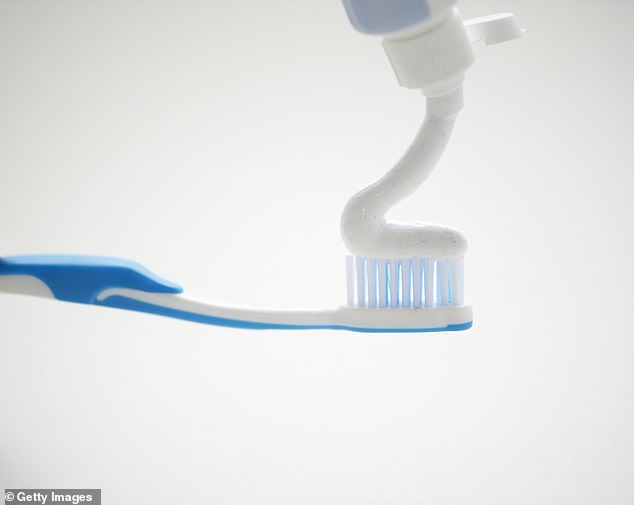The new ‘toothpaste’ shot that could potentially fix crumbling bones
An injection of a substance found in toothpaste can treat bone fractures caused by osteoporosis, a condition in which bones break easily.
New research suggests that the mineral hydroxyapatite, used in some toothpastes to prevent tooth decay, may help stimulate new bone growth. Patients with osteoporosis who received the injections into a fracture had higher bone density and a lower risk of further surgery.
Osteoporosis affects an estimated three million people in the UK. People who use steroids, smoke, drink heavily or have a family history of the disease are most at risk, while diet and hormones can also contribute.
Throughout life, cells called osteoclasts break down old bone, while cells called osteoblasts form new bone.
The activity of these cells is generally constant, but after the age of 50 or so, there are gradually fewer osteoblasts than osteoclasts. Osteoporosis develops when the balance tips too far in favor of the osteoclasts.
Often the condition remains unnoticed until a fracture occurs.
Osteoporosis, a condition that causes weakening of the bones, often goes unnoticed until an accident occurs

Researchers suggest that the mineral hydroxyapatite, used in some toothpastes to prevent tooth decay, may help stimulate new bone growth
There are medications to treat the condition, such as bisphosphonates, which reduce the risk of fractures but do not reverse bone loss. Newer medications, known as monoclonal antibodies, are injected and make bones stronger.
According to the National Institute for Health and Care Excellence, around 180,000 fractures related to osteoporosis are treated by the NHS each year.
A challenge for surgeons is that many of these fractures must be fixed with screws and metal plates, but the weakness of the bone can make this difficult. Repeated surgery is often necessary if the bone cannot hold the screws.
However, in a new study, doctors at Lund University in Sweden used a synthetic form of hydroxyapatite to increase the strength of bones during surgery.
Hydroxyapatite is a natural mineral found in human bone and teeth that strengthens bone and aids in regeneration. It is also added to some toothpastes because it is believed to help remineralize tooth enamel and prevent tooth decay.
In the new study, hydroxyapatite was injected into the bone around the fracture after it was repaired with screws and plates. The hydroxyapatite solidified within minutes to strengthen the repair.

Mike McNicholas, a trauma and orthopaedic surgeon at Liverpool University Hospitals, said the findings were ‘hugely important and will make a real difference to those unfortunate enough to suffer a fragility fracture’
Seven to 14 days later, the patients received an intravenous infusion of bisphosphonate acid, a drug used in tablet form to slow the rate at which bone tissue is broken down.
The combination of bisphosphonate and hydroxyapatite activated the growth of new bone cells to enhance repair, the journal Acta Biomaterialia reported.
Two months later, researchers found that the treated area had turned into bone around the screws, and after six months, bone density had increased by 17 percent. Stability around the screws and plates was four times greater — meaning patients didn’t need repeat surgery.
Mike McNicholas, a trauma and orthopaedic surgeon at Liverpool University Hospitals, said the findings were ‘hugely important and will make a huge difference to people who are unfortunate enough to suffer a fragility fracture.’
